Toward Botswana's Economic Diversification
2025.05.08
-

- Botswana office, Hiroyasu Tonokawa, Resident Representative
Twenty-one JICA personnels in Botswana participated in the Kazungula Bridge Marathon in February 2025. JICA cooperation on the Kazungula Bridge and border facilities will be introduced.
On Saturday, February 22, 2025, the Kazungula Bridge Marathon was held at Kazungula, a border town with Zambia, as the starting point, and 21 personnels from JICA Botswana, mainly Japan overseas cooperation volunteers (JOCVs), participated. The races were divided into 5 km, 10 km, and 21 km sections, starting sequentially at 6 am. Participants crossed the Kazungula Bridge from Kazungula to the Zambian side after passing by border facilities on the Botswana side. They ran to the turnaround point and then to the finish line.
From the top of the Kazungula Bridge in the early morning, the Chobe and Zambezi Rivers and the four countries of Zambia, Namibia, Zimbabwe, and Botswana located on both sides of the rivers could be seen. The participants enjoyed the race at their own pace while enjoying the magnificent scenery.
The Kazungula Bridge, the site of this marathon, and border facilities on the Botswana and Zambia sides are key points of transportation along the North-South Corridor, which runs through southern Africa from Durban, the main port of South Africa, through Zimbabwe and Botswana to Lusaka, the capital of Zambia. Previously, travelers from Botswana to Zambia had to complete departure procedures at the Botswana border post, cross the Zambezi River by ferry, and complete entry procedures at the Zambian border post, which required much time. To solve this problem, the governments of both countries, the African Development Bank, and JICA cooperated to build a bridge and border facilities.
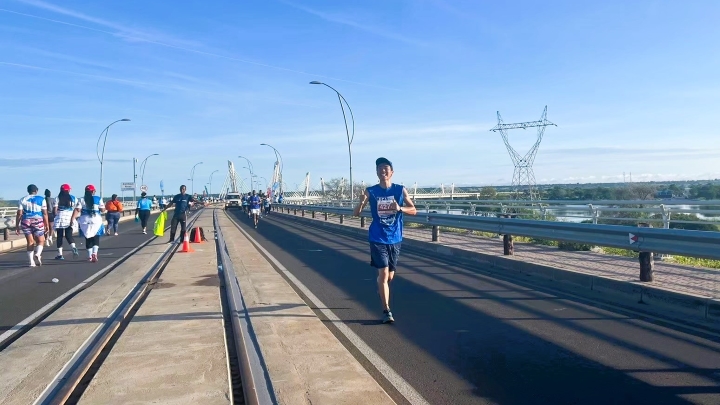
JOCV running on the Kazungula Bridge at a brisk pace
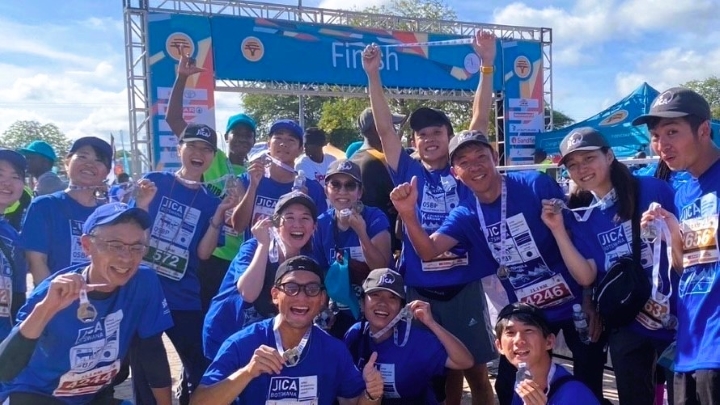
JICA Botswana personnels who completed each race
The construction was triggered by a survey conducted by JICA about 25 years ago. Subsequently, the Southern African Development Community (SADC) conducted a detailed study, and the construction of the Kazungula Bridge and border facilities between the two countries were completed in 2021. The border crossing, which previously took an average of 30 hours due to waiting for a ferry, has been significantly shortened and traffic volume has increased. The border facilities have adopted "One Stop Border Post (OSBP)" system, which allows for one-stop processing for both countries’ procedures at the point of entry.
However, because of the lack of experience in operating OSBP, JICA provided technical cooperation until March 2025. JICA has supported the development of a joint management system for both countries, the preparation of manuals, and the training of relevant staff, thereby strengthening the capacity of the various institutions involved. The results of these efforts are beginning to be applied at other border posts in Botswana.
I was impressed by the taxi driver I boarded during my visit to Kazungula, who pointed to the Kazungula Bridge and said enthusiastically, "That facility has really made it easier for us to get to and from Zambia. JOCVs who took the pre-departure training program in Japan together with JOCVs in Botswana came from Zambia to encourage their friends who participated in the marathon race, and they enjoyed wonderful reunion at the border This kind of connections might not have been possible without JICA's cooperation.
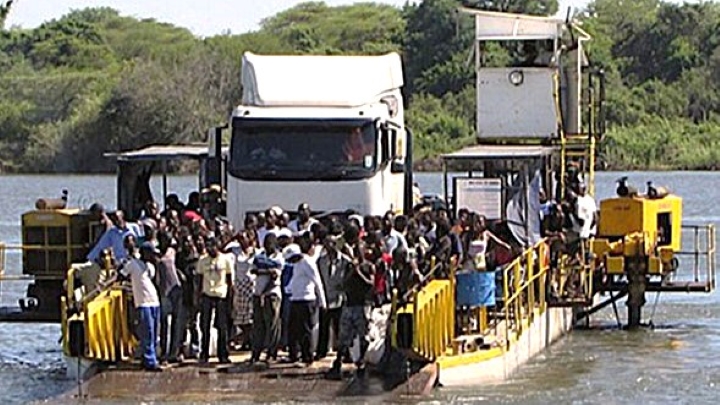
Before the opening of the Kazungula Bridge, the river was crossed by a floating pier.
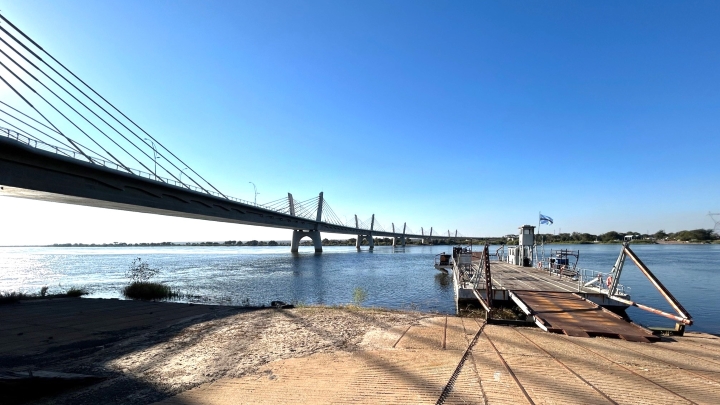
Kazungula Bridge viewed from the pier that was once used
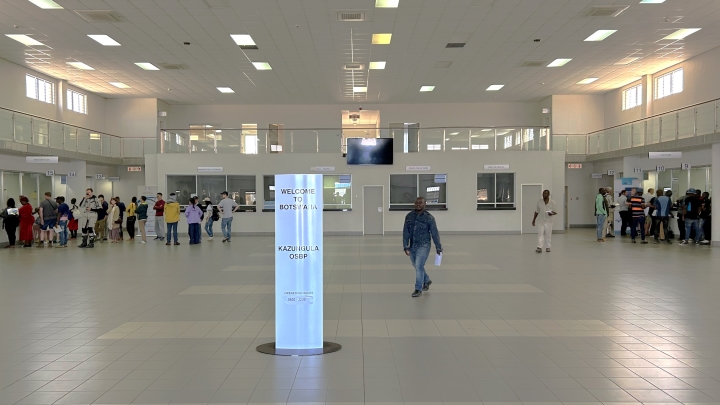
Passenger terminal facility on the Botswana side, where passengers can process both the procedures of departure from Zambia (right side) and entry to Botswana (left side).
Botswana was one of the poorest countries in the world at the time of independence in 1966, but the diamond which was discovered in the following year led her to economic growth, and today Botswana is an upper-middle income country with a per capita GNI of $8,340 (World Bank, 2023). However, Botswana's economic situation has become increasingly difficult in recent years due to competition from synthetic diamonds and a global slump in demand for diamonds, making it an urgent issue to take off from its dependence on diamonds.
As a landlocked country surrounded by land on all sides and with a population of 2.48 million (World Bank, 2023), The domestic market in Botswana is small, and propmoting export industries is key to economic diversification. In addition to cooperation for trade facilitation, cooperation such as fostering promising industries and supporting small and medium-sized enterprises is also necessary, and JICA will continue its cooperation in these areas in the future. We hope that past and future efforts of JICA cooperation will lead to sustainable development of Botswana and the Southern African region.
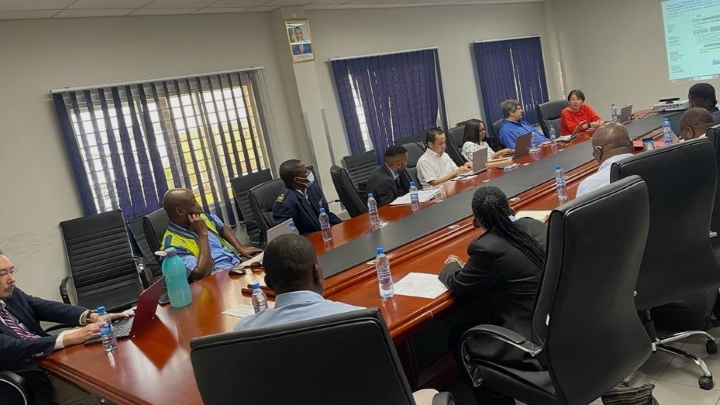
Botswana and Zambia government officials and JICA experts discussing at the Kazungula Joint Border Steering Committee.
scroll